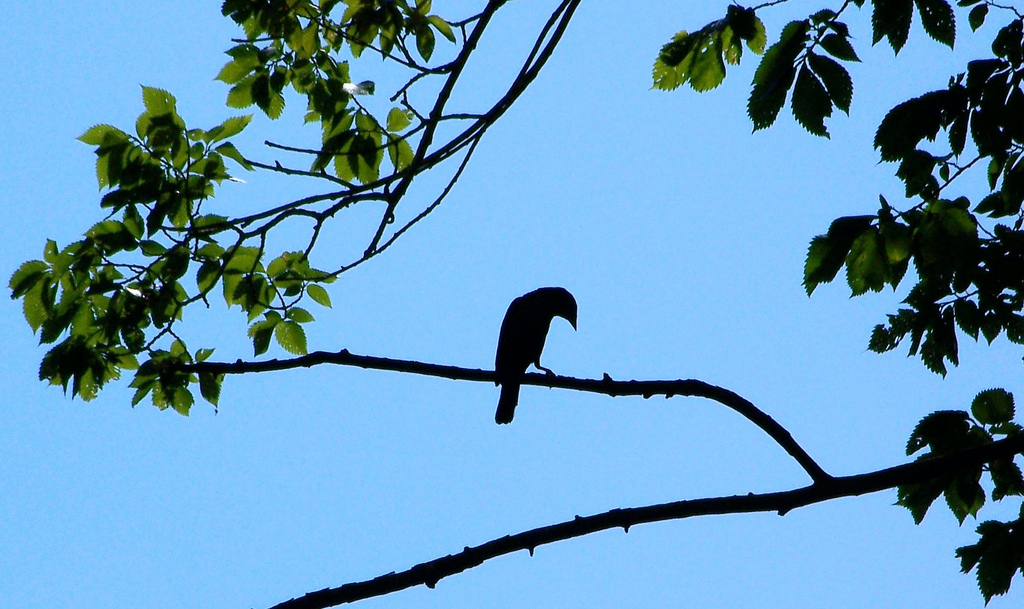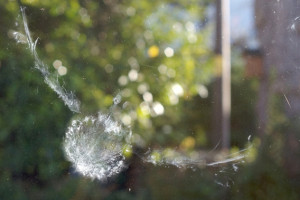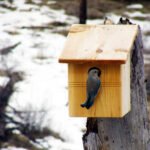
Birds are lively creatures that elicit wonder and awe as they gracefully soar through the air. Seeing a bird hopping on the ground is endearing, but the true allure of birds reveals itself when they take flight.
That’s why it’s so disheartening and disconcerting when you find a dead bird on the ground. It doesn’t matter where you find the bird, it always seems to bring down the mood.
So what should you do if you come across a dead bird? Before we answer that question, let’s first take a look at some of the reasons a bird is no longer ascending into the sky.
Reasons a bird may have died
Finding the reason why a bird may have died is difficult, and you shouldn’t spend too much time trying to figure it out. A dead bird should be reported or disposed of as soon as possible. However, these are some of the most common ways birds die.
 Collisions: That thump against a window is one of the worst sounds in the world. It means a bird has crashed head first into a window and one of two things have happened: it’s dazed but fine or it crashed too hard and broke its neck. Dead birds found near windows or reflective buildings have usually suffered broken necks. In this same category are cars and even turbines. For those two, sometimes the impact is enough to fell a bird.
Collisions: That thump against a window is one of the worst sounds in the world. It means a bird has crashed head first into a window and one of two things have happened: it’s dazed but fine or it crashed too hard and broke its neck. Dead birds found near windows or reflective buildings have usually suffered broken necks. In this same category are cars and even turbines. For those two, sometimes the impact is enough to fell a bird.
Preyed Upon: Cats are a huge threat to birds, but it’s pretty clear when a bird has been killed by a predator. They’re typically mangled or half-eaten. However, predators may also come and chew on a bird after it’s already dead, so that’s not always reliable.
West Nile Virus: West Nile virus is a serious threat to many birds. Birds catch this deadly virus from mosquitoes and die from the infection. There’s no tell-tale sign of death by West Nile virus.
Other Diseases: Aside from West Nile virus, a bevy of diseases affect birds, including avian botulism, avian influenza, and others.
Weather: Birds are quite adept at navigating storms, but devastating winds and unrelenting hail could cause birds to become disoriented. Lightning strikes on trees where birds roost are also threats. Even heat waves and cold snaps can wreak havoc on birds.
Pesticides and Poisons: Some studies claim that pesticides cause more deaths than West Nile virus. While the birds aren’t always killed directly by poisons and pesticides, it does often make them weak and susceptible to predation. It’s difficult to determine whether a bird you found has died by poison, unless you’re familiar with a nearby oil spill or a recent bout of acid rain. Frequent hunting in the area may also result in lead poisoning.
How to Dispose of a Dead Bird
In the vast majority of cases, a bird has died from a broken neck, predation, or some other innocuous reason. If you happen to find a common backyard bird dead in your backyard, it’s important to dispose of the bird as quickly as possible because you don’t want to expose other birds or animals to diseases or parasites.
When you dispose of the bird, put on some gloves, grab a shovel, and place the bird in a plastic bag. Make sure it can be sealed or wrapped up completely. Put the bag inside a trash can with a lid. If any fluids are left over or get on your tools, make sure to clean them off thoroughly with bleach.
When to Report a Dead Bird
Some localities want you to report a dead bird, especially in places where West Nile virus is rampant. For example, California has a specific West Nile virus website where you can report a dead bird, but make sure to check with the local health agencies in your area.
It’s also a good idea to report larger dead birds like hawks or vultures, rare birds, or birds that seem to have been illegally hunted.




11 Comments
I hope you don’t mean a storm drain, those drain directly into the ocean or nearest body of water. If the animal was sick that would spread to sea life or river.
Through it in sewer then I found another one is this unusal
*yard